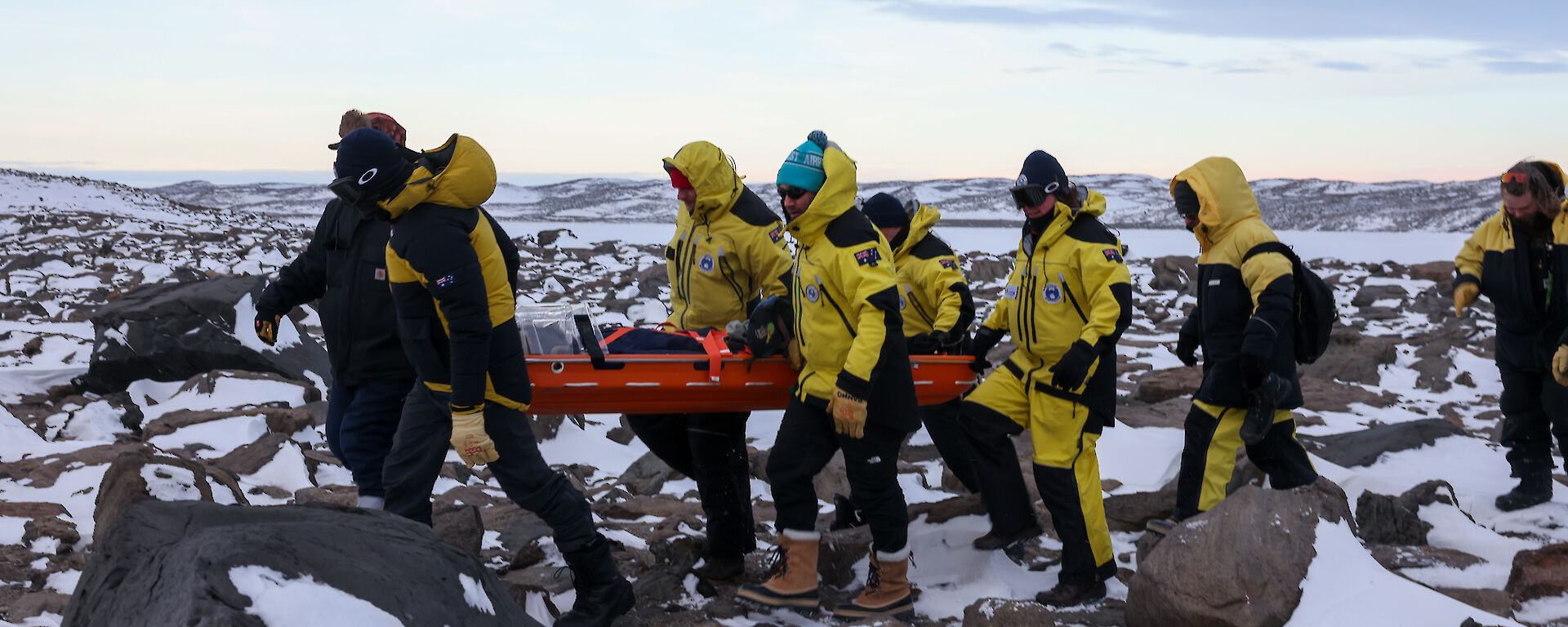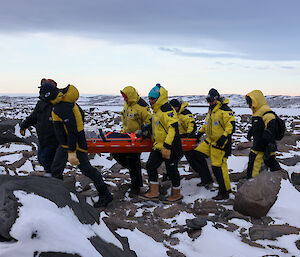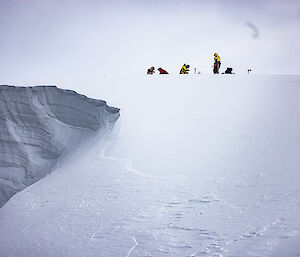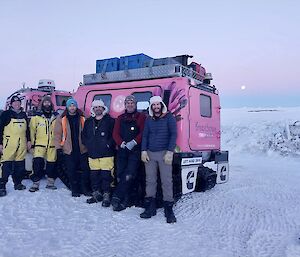Search and Rescue at Davis
Search and Rescue Training at Davis Station Ensures Preparedness and Unity
Being at an Antarctic station during winter requires self-reliance in all aspects of life, especially when it comes to safety and emergency response. With help being thousands of kilometres away, the wintering team at Davis Station must be prepared to handle any situation that arises on their own. This is why Search and Rescue (SAR) training is essential, and all wintering expeditioners receive comprehensive training to ensure they can respond effectively in case of emergencies.
Pre-Antarctica Training
Before heading south, all expeditioners undergo training in Hobart, where they learn the fundamentals of SAR to prepare them for the harsh Antarctic environment. This training includes:
- Incident Management Systems: Familiarisation with the Australian Antarctic Division (AAD) SAR systems, ensuring that all team members understand how to manage incidents effectively.
- SAR Familiarisation: An overview of search and rescue operations, including search techniques, use of SAR equipment, and technical rope rescue systems. This gives participants a solid foundation in the skills they will need.
- First Responder Training: Equipping expeditioners with the skills and knowledge required to provide first aid to a casualty in a remote or isolated site over an extended period of time.
On-Site Training in Antarctica
Once in Antarctica, the training continues with hands-on exercises designed to simulate real scenarios:
- Survival Training: Expeditioners learn essential survival skills, such as what to do if separated from the group while out in the field, small party rescue techniques, and the procedures to follow in an emergency situation.
- Station Search: Training that involves searching for a missing person within the station limits. Key learning factors include understanding the roles and responsibilities of those involved, and how to conduct searches systematically and methodically.
- Land Search: Simulating the search for a lost person off-station, where team members use clues to locate an injured individual and apply techniques to stabilise and safely transport them back to the station.
The Technical SAR Team
A core component of the SAR capability at Davis Station is the technical SAR team, comprising up to six expeditioners selected early in the season. This team, alongside the Senior Field Training Officer (SFTO), is responsible for leading SAR responses. Each member undergoes specialised training in various modules, allowing them to handle more complex rescue scenarios.
Training is delivered by the SFTO, who acts as the SAR Team Leader, ensuring the drills are as realistic and comprehensive as possible. Exercises simulate emergencies that could arise, including search techniques in whiteout conditions. With visibility dropping to near zero during these scenarios, the team practices navigation and coordination, skills that are vital in an actual emergency. Participants learn to search for missing personnel, provide emergency first aid, and use specialised rescue equipment, including stretchers, rope systems, and GPS devices.
Communication: A Critical Element
Communication strategies form a vital part of SAR training. In the remote and isolated environment of Antarctica, clear and efficient communication can mean the difference between a successful rescue and a tragic outcome. During SAR exercises, participants use radios, satellite phones, and signal flares, practicing how to relay information back to the station’s command centre.
“The biggest challenge is the scale of the area we need to cover,” said Joe Nott, technical SAR team member.
“In a blizzard, you can easily lose sight of each other, and if we’re not in constant contact, things can go wrong very quickly.”
Training ensures that the team remains connected, no matter how difficult the conditions may be.
Team Cohesion and Cooperation
The team at Davis Station is diverse, made up of an electrician, carpenters, plumbers, and support staff. While they each have specific roles, SAR training brings them together, building unity and cooperation, which are essential for operating safely in such an extreme environment.
“It’s really a team effort,” said expedition carpenter Dael Moffatt.
“Everyone has to know their role, but we also have to trust each other. If something happens, we have to be able to rely on our teammates to do their part, even if it’s freezing cold and we’re all exhausted.”
Adapting to the Antarctic Environment
The unpredictability of the Antarctic environment adds an extra layer of complexity to SAR operations. Weather conditions can change rapidly, turning a clear, calm day into a dangerous blizzard in minutes. Therefore, a significant portion of the training focuses on how to adapt to these sudden changes. Teams learn to monitor weather patterns, assess risks, and make quick decisions about when to proceed and when to pull back.
“Sometimes the best decision is to wait for conditions to improve,” said Moffatt.
“It can be tough to make that call, but safety has to come first.”
Building Trust and Morale
Despite the seriousness of the drills, there are also moments of camaraderie. After completing SAR exercises, the team gathers to review what they have learned, reflecting on the day’s challenges and successes. These moments of debriefing help build morale and trust, which are just as important as the technical skills they practice.
“It’s great to see how everyone comes together,” said Electrician Jen Fitzpatrick.
“Even out here at the end of the Earth, you are part of a team that’s looking out for each other.”
Prepared for the Summer Season
As temperatures begin to rise and the wintering team prepares for the arrival of the summer expeditioners, the skills honed during this intensive SAR training remain at the forefront. The team at Davis Station is vigilant, ready to tackle any emergencies that may arise, upholding the high standards of safety and resilience that the Antarctic community relies on. With this training, they have not only sharpened their technical abilities but also strengthened the bonds that will see them through the challenges of life on the ice.
Mike Atkinson, Field Training Officer
Davis Station 2024





